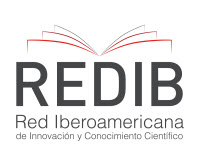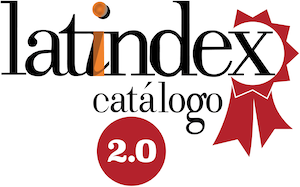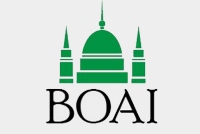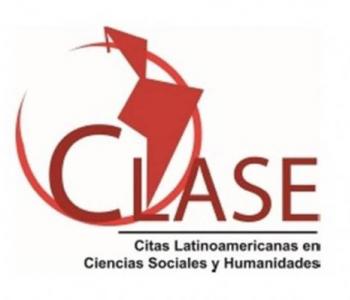Características relevantes en el comportamiento empresarial. Aplicación en la transformación curricular en una universidad ecuatoriana
DOI:
https://doi.org/10.32645/13906925.1216Palabras clave:
Conductas emprendedoras, pensamiento empresarial, análisis factorial exploratorio, análisis factorial confirmatorio, modelo de medidaResumen
En Ecuador, así como en el mundo, se evidencia que la mayoría de las empresas fueron creadas con las ideas de los emprendedores. El problema es la brecha que existe entre los estudiantes que quieren emprender y los que evidencian la creación de una empresa durante el transcurso de la carrera. El objetivo del estudio es valida las conductas emprendedoras más relevantes en el comportamiento empresarial de los estudiantes de la Universidad Politécnica Estatal del Carchi (UPEC), con el fin de aportar a la modificación del currículo. Se obtuvo una medición de los estudiantes en torno a 50 aseveraciones con escala de Likert que exponen comportamientos en relación con 10 conductas empresariales, permitiendo un Análisis Factorial Exploratorio (AFE) para explicar las necesidades planteadas por McClelland en cuatro variables latentes: decidido, efectivo, sistemático y seguro. Este ejercicio estadístico cumple el supuesto de normalidad multivariante mediante la prueba de Mardia y la prueba Kayser Meyer Olkin (KMO), cuyo umbral debe ser mayor al valor de 0,70 con métodos de Extracción Máxima Verosimilitud y de Rotación Promax. Se aplicó el Análisis Factorial Confirmatorio (AFC) y se validaron los supuestos psicométricos: FC, AVE y VD. Los resultados muestran cómo en Ecuador desde el currículo se pueden intervenir algunas variables para hacer que los estudiantes con ideas emprendedoras se conviertan en empresarios. Estos estudiantes son sistemáticos, planifican proyectos con información pertinente y ejecutan la hoja de ruta. Son efectivos al esmerarse por hacer que las cosas se cumplan como lo planificaron. Son seguros de sí mismos, tienen confianza en el éxito realizando trabajos excelentes para
alcanzar soluciones incluyentes.
Referencias
Aldrich, H.E. (1999). Organizations Evolving. Sage, Thousand Oaks, CA.
Bastos, M.H.R., Hernandez, C.T., Amaral, M. (2016) A study of the entrepreneurial profile of students in the State of Rio de Janeiro. IAMOT 2016 - 25th International Association for Management of Technology Conference, Proceedings: Technology - Future Thinking, pp. 450-469.
Birch, D.L. (1979). The Job Generation Process. MIT Program on Neighborhood and Regional Change, Cambridge, MA.
Chul Han, B. (2017). La soledad del cansancio. Barcelona: Herder.
FAO y CEPAL, (2020). Análisis y respuestas de América Latina y el Caribe ante los efectos de COVID-19 en los sistemas alimentarios. Boletín N.° 2. Santiago, FAO. https://doi.org/10.4060/ca8872es
Gaskin, J. (2016), Análisis factorial confirmatorio. StatWiki de Gaskination. http://statwiki.gaskination.com
Hair, J., Black, W., Babin, B. y Anderson, R. (2010). Análisis de datos multivariados (7ª ed.): Prentice-Hall, Inc. Upper Saddle River, Nueva Jersey, EE. UU.
Hebles, M., Llanos-Contreras, O., Yániz-Álvarez-De-Eulate, C. (2019). Perceived evolution of the entrepeneurial competence based on the implementation of a training program in entrepreneurship and innovation. Revista Española de Orientación y Psicopedagogía, 30 (1), pp. 9-26.
https://www.scopus.com/inward/record.uri?eid=2-s2.0-85088507062&doi=10.5944%2fREOP.VOL.30.NUM.1.2019.25191&partnerID=. DOI: 10.5944/REOP.VOL.30.NUM.1.2019.25191
Kirzner, I. M. (2008). The alert and creative entrepreneur: a clarification. Small Business Economics, 32 (2), 145–152. doi:10.1007/s11187-008-9153-7
Lucci, F., Pluzhnik, I.L., Ilnitskaya, T.O. (2018). Are entrepreneurs born or made? Effective academic models to foster entrepreneurial graduates. Obrazovanie i Nauka, 20 (5), pp. 56-78. https://www.scopus.com/inward/record.uri?eid=2-s2.0-85062488708&doi=10.17853%2f1994-5639-2018-5-56-78&partnerID=40&. DOI: 10.17853/1994-5639-2018-5-56-78
Malach, J., Kysil, N. (2019) Application of digital tools for the development of entrepreneurship competencias. Proceedings of the European Conference on e-Learning, ECEL, 2019-November, pp. 378-386.
https://www.scopus.com/inward/record.uri?eid=2-s2.0-85077508275&doi=10.34190%2fEEL.19.078&partnerID=40&md5=4121ba8365910c1d0a6c28df3472b10f. DOI: 10.34190/EEL.19.078
Malhotra N. K., Dash S. (2011). Investigación de Marketing una Orientación Aplicada. Londres: Pearson Publishing.
Maurya, A. (2010). Running Lean: Iterate from Plan A to a Plan That Works. UNIR.
McClelland, D. C. (1961). The achieving society. Princeton, NJ: Van Nostrand.
McClelland, D. C. (1987). Characteristics of successful entrepreneurs. Journal of Creative Behavior, 21(3), 219–233.
McClelland, D. (1989). Estudio de la motivación humana. Madrid: NARCEA S.A.
McClelland, D. C. (1990). Human motivation. Cambridge: Cambridge University Press.
Mourão, P., & Schneider Locatelli, D. R. (2020). Testing McClelland at the academy: an analysis of entrepreneurial behavioral characteristics. Sustainability, 12(5), 1771.
Oganisjana, K., Koke, T. (2012). Does competence-oriented higher education lead to students’ competitiveness? Engineering Economics, 23 (1), pp. 77-82.
https://www.scopus.com/inward/record.uri?eid=2-s2.0-84875961322&doi=10.5755%2fj01.ee.23.1.1228&partnerID=40&md5=633799facef70bc436f5853f5bdc8446. DOI: 10.5755/j01.ee.23.1.1228
Ortiz, E. y Noboa, P. (2020). Propuestas societarias y concursales para mitigar el impacto económico del covid-19 en Ecuador. X-Pedientes Económicos, 4(8), 38-48. http://ojs.supercias.gob.ec/index.php/X-pedientes_Economicos/article/view/110
Osterwalder, A., Pigneur, Y., Smith, A., Bernarda, G., & Papadakos, P. (2014). Diseñando la propuesta de valor. DEUSTO.
Passaro, R., Quinto, I., Thomas, A. (2018). The impact of higher education on entrepreneurial intention and human capital. Journal of Intellectual Capital, 19 (1), pp. 135-156. https://www.scopus.com/inward/record.uri?eid=2-s2.0-85039703045&doi=10.1108%2fJIC-04-2017-0056&partnerID=40&md5=43dc28419225f6c031e79fb84faf1a9c.
DOI: 10.1108/JIC-04-2017-0056
Pedraza, M. y Velásquez, S. (2019). Formación para emprendedores, un reto que va más allá del aula. NOVUM, 2(9), 166-183. https://revistas.unal.edu.co/index.php/novum/article/view/78951
Porter, M. (1990). The Competitive Advantage of Nations. Free Press, New York.
Rungsrisawat, S., Sutduean, C. (2019). Entrepreneurial education and entrepreneurial intention: The mediating role of creativity disposition among University Students in Thailand. International Journal of Innovation, Creativity and Change, 6 (10), pp. 213-232. https://www.scopus.com/inward/record.uri?eid=2-s2.0-85074256374&partnerID=40&md5=597526f490d47ce40a7241405e1a28a3
Shane, S., & Venkataraman, S. (2000). The Promise of Entrepreneurship as a Field of Research. The Academy of Management Review, 25(1), 217-226. http://www.jstor.org/stable/259271
Schumpeter, J.A. (1934). The Theory of Economic Development. Harvard University Press, Cambridge, MA.
Suparno, Wibowo, A., Herlitah, Mukhtar, S., Kusumojanto, D.D., Suwatno, Narmaditya, B.S., Raudah, M. (2019). Do entrepreneurial education and training impact on entrepreneurial skills-based ecopreneurship? Humanities and Social Sciences Letters, 7 (4), pp. 246-253. https://www.scopus.com/inward/record.uri?eid=2-s2.0-85077643485&doi=10.18488%2fjournal.73.2019.74.246.253&partnerID=40&
DOI: 10.18488/journal.73.2019.74.246.253
Van Praag, C.M. (2005). Successful Entrepreneurship. Confronting Economic Theory with Empirical Practice. Cheltenham, Edward Elgar.
Winter, D. G. (1991). Manual for scoring motive imagery in running text (3rd ed.). Unpublished manuscript, Department of Psychology, University of Michigan, Ann Arbor.
Yang, Q., Chen, J., Yang, L., Liu, Z. (2021). How to Develop Entrepreneurial Talent More Effectively? A Comparison of Different Entrepreneurship Educational Methods. Frontiers in Psychology, 12, art. no. 644113.
https://www.scopus.com/inward/record.uri?eid=2-s2.0-85104944643&doi=10.3389%2ffpsyg.2021.644113&partnerID=40&md5=4efedd3ab0d0586b8efb1ba71882324f. DOI: 10.3389/fpsyg.2021.644113
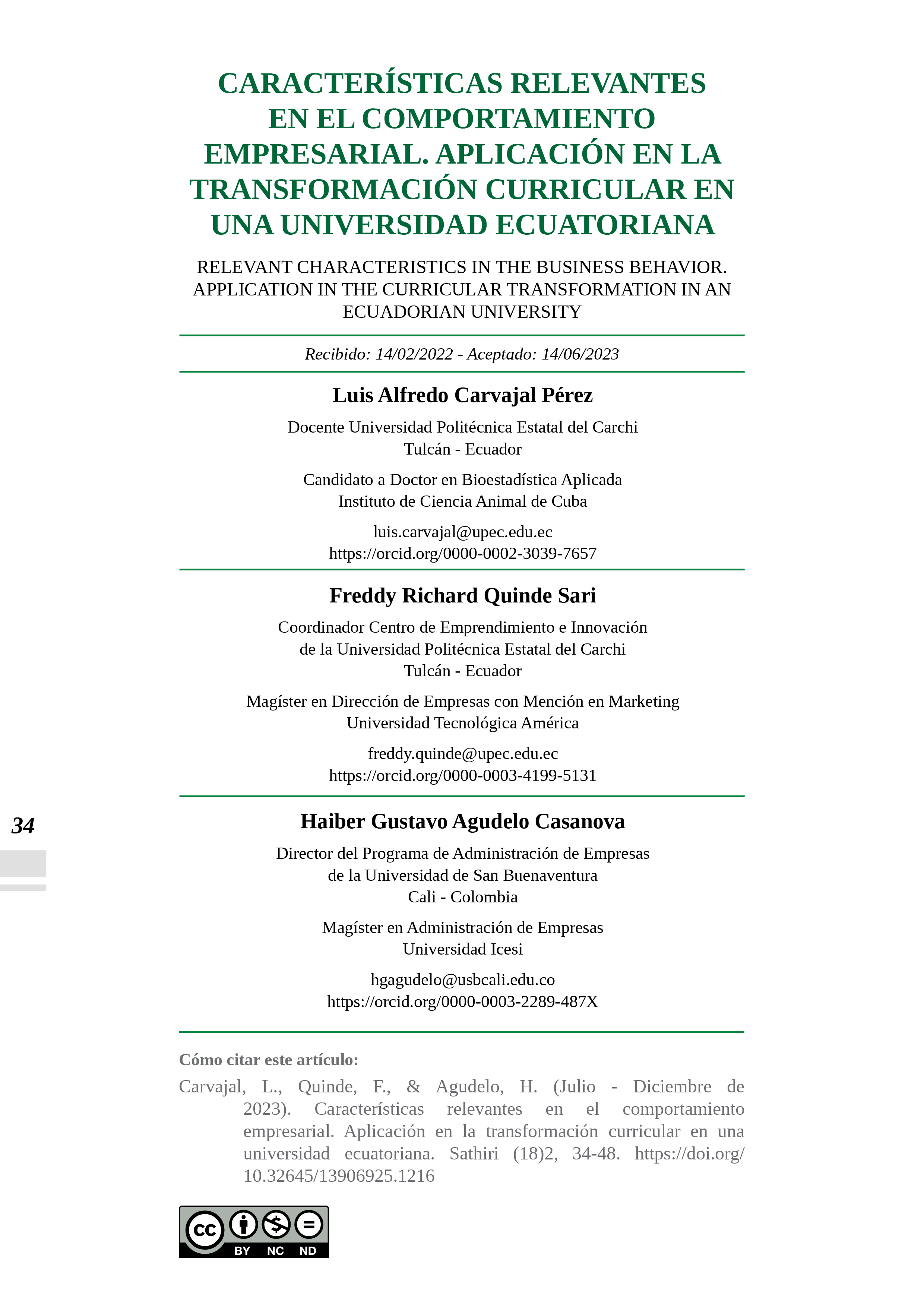
Publicado
Número
Sección
Licencia
Derechos de autor 2023 Luis Alfredo Carvajal Pérez, Freddy Richard Quinde Sari, Haiber Gustavo Agudelo Casanova

Esta obra está bajo una licencia internacional Creative Commons Atribución-NoComercial-SinDerivadas 4.0.
El autor mantiene los derechos morales e intelectuales de su obra, autorizando a la editorial de la revista Sathiri la difusión y divulgación de su contenido con fines estrictamente académicos y de investigación, sin fines de lucro. Así mismo, se autoriza que la obra sea descargada y compartida con otras personas, siempre y cuando no sea alterada y se reconozca su autoria.






